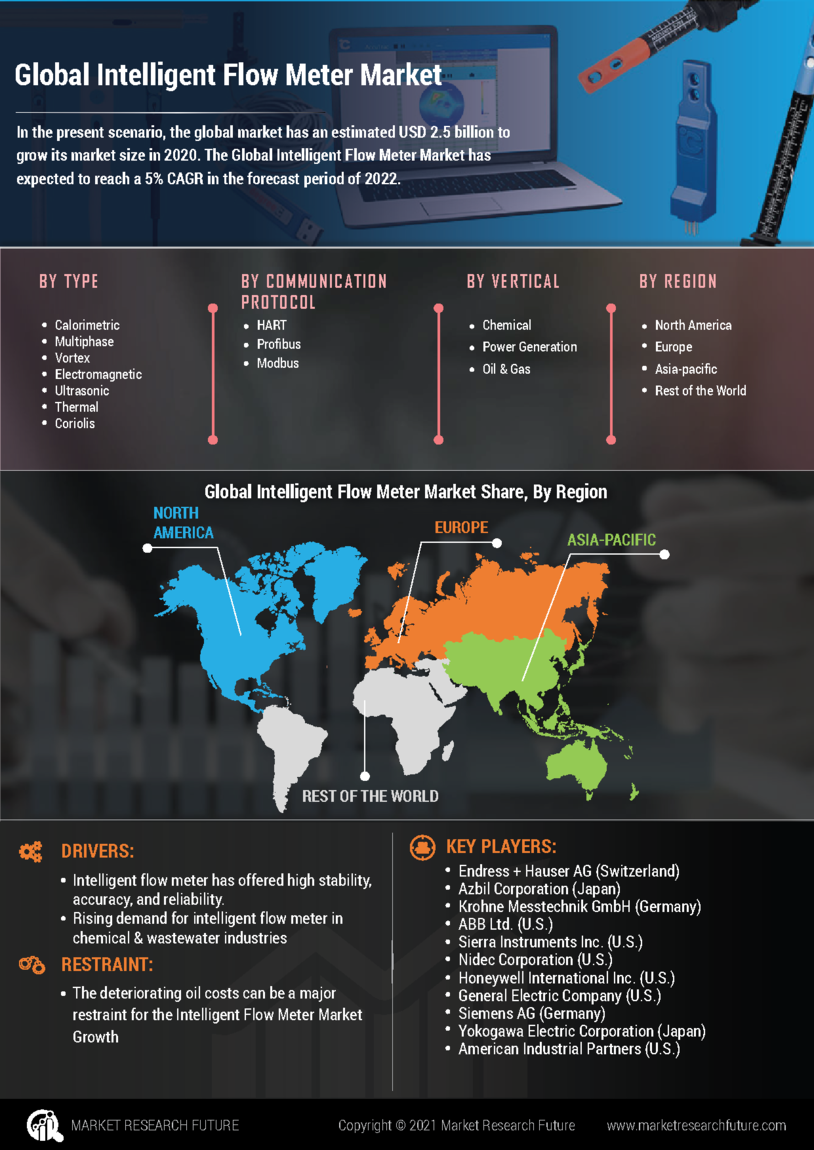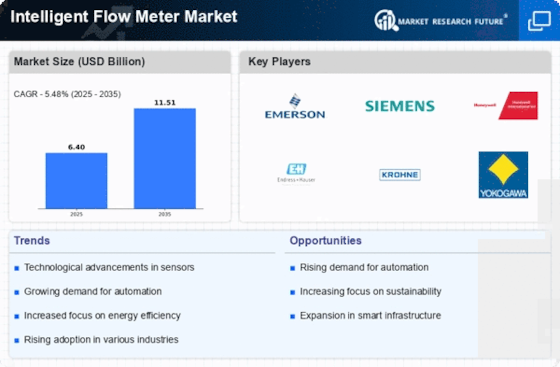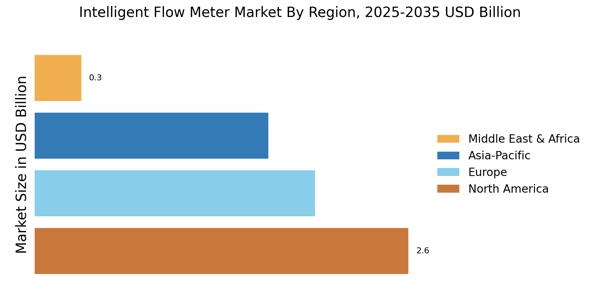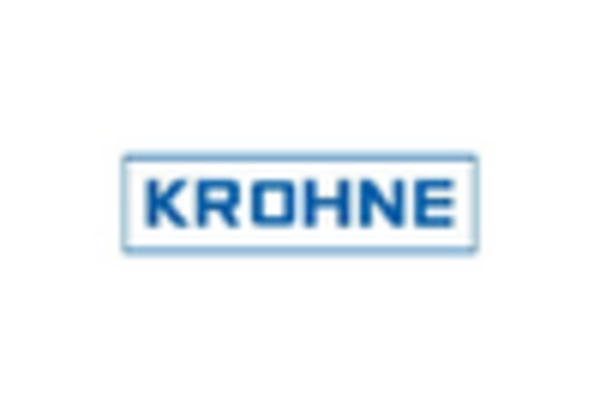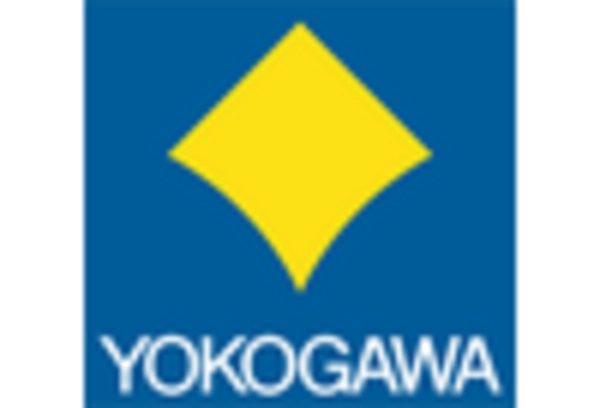Focus on Energy Efficiency
The Intelligent Flow Meter Market is increasingly driven by a focus on energy efficiency, as organizations seek to reduce operational costs and minimize their environmental impact. Intelligent flow meters enable precise monitoring of energy consumption in various applications, allowing companies to identify inefficiencies and implement corrective measures. The energy sector, in particular, is expected to see a significant uptick in the adoption of intelligent flow meters, with projections indicating that this segment could represent over 25% of the market by 2026. This emphasis on energy efficiency not only supports corporate sustainability goals but also aligns with global initiatives aimed at reducing carbon footprints, thereby enhancing the relevance of intelligent flow meters in contemporary industrial practices.
Growth in Industrial Automation
The Intelligent Flow Meter Market is benefiting from the broader trend of industrial automation, which is reshaping manufacturing and processing sectors. As industries adopt automated systems to enhance productivity and reduce operational costs, the demand for intelligent flow meters is likely to increase. These meters provide critical data that can be integrated into automated systems for improved process control and efficiency. The market is projected to grow at a rate of approximately 7% annually, reflecting the increasing reliance on automation technologies. This driver illustrates how intelligent flow meters are becoming integral components of automated processes, facilitating better resource management and operational efficiency.
Integration of Advanced Technologies
The Intelligent Flow Meter Market is experiencing a notable shift towards the integration of advanced technologies such as artificial intelligence and machine learning. These technologies enhance the accuracy and efficiency of flow measurement, enabling real-time data analysis and decision-making. As industries increasingly seek to optimize their operations, the demand for intelligent flow meters is projected to grow. According to recent estimates, the market is expected to reach a valuation of approximately USD 5 billion by 2026, driven by the need for precise flow measurement in sectors like oil and gas, water management, and chemical processing. This trend indicates a significant transformation in how flow measurement is approached, with intelligent systems becoming essential for operational excellence.
Regulatory Compliance and Safety Standards
The Intelligent Flow Meter Market is significantly influenced by stringent regulatory compliance and safety standards across various sectors. Industries such as oil and gas, pharmaceuticals, and food and beverage are subject to rigorous regulations that mandate accurate flow measurement to ensure safety and quality. As a result, companies are increasingly investing in intelligent flow meters that not only meet these standards but also provide enhanced monitoring capabilities. The market is likely to see a compound annual growth rate of around 8% over the next few years, as organizations prioritize compliance and safety in their operations. This driver underscores the critical role of intelligent flow meters in maintaining industry standards and protecting public health.
Rising Demand for Water Management Solutions
The Intelligent Flow Meter Market is witnessing a surge in demand for effective water management solutions, driven by increasing concerns over water scarcity and the need for sustainable practices. Intelligent flow meters play a crucial role in monitoring water usage, detecting leaks, and optimizing distribution systems. As municipalities and industries strive to enhance their water management strategies, the adoption of intelligent flow meters is expected to rise. Recent data suggests that the water management sector could account for nearly 30% of the intelligent flow meter market by 2025. This trend highlights the importance of intelligent flow meters in promoting efficient water usage and supporting environmental sustainability initiatives.
